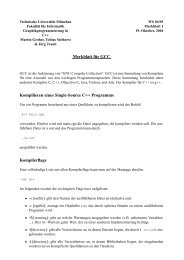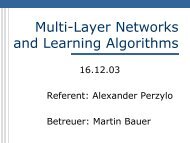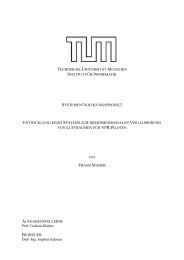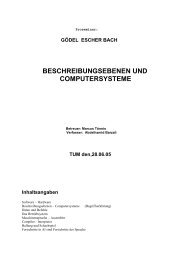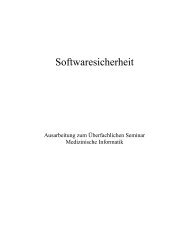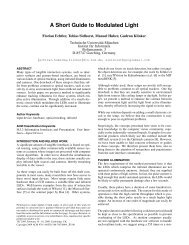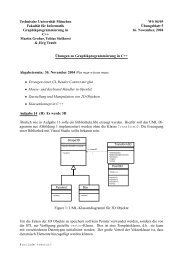A short history of programming languages 1 How computers and ...
A short history of programming languages 1 How computers and ...
A short history of programming languages 1 How computers and ...
Create successful ePaper yourself
Turn your PDF publications into a flip-book with our unique Google optimized e-Paper software.
3.1 S<strong>of</strong>tware crisis<br />
As hardware power was growing exponetially, following Moore’s Law, s<strong>of</strong>tware programmers<br />
struggled to keep up. More <strong>and</strong> more lines <strong>of</strong> code were being written for increasingly complex<br />
projects. This led to the s<strong>of</strong>tware crisis <strong>of</strong> the 1960’s <strong>and</strong> early 1970’s when more <strong>and</strong> more<br />
s<strong>of</strong>tware projects began to run over-budget <strong>and</strong> over-time, as well as being <strong>of</strong> poor quality.<br />
In 1968 Friedrich Bauer adresses the problem at a NATO Conference in 1968 in Garmisch<br />
<strong>and</strong> calls for s<strong>of</strong>tware engineering, much similar to project managemant in classical engineering<br />
fields. The most interesting proposal from a <strong>programming</strong> language point <strong>of</strong> view being<br />
modularization <strong>of</strong> code for easier maintenance, since only parts <strong>of</strong> the s<strong>of</strong>tware have to be<br />
rewritten, if the need arises. Also modularization encourages <strong>and</strong> supports collaboration<br />
between programmers on s<strong>of</strong>tware projects.<br />
These concepts have found their way into todays <strong>languages</strong>, which pretty much all support<br />
modularization in some form or other.<br />
3.2 Object Orientation<br />
Object-oriented <strong>programming</strong> dates back to the 1960’s but only got popular in the early<br />
1990’s. It is a special type <strong>of</strong> modularization intended to ensure a programmes quality.<br />
Object-oriented <strong>programming</strong> <strong>languages</strong> share a few common concepts which would define<br />
them:<br />
- Class: a class defines the traits shared by all the objects which can be instances <strong>of</strong> that class<br />
- Object: an object is an instance <strong>of</strong> such a class<br />
- Method: a method is the ability <strong>of</strong> such an object<br />
Other concepts in OOP include message passing, inheritance <strong>and</strong> encapsulation.<br />
3.3 Home Computers<br />
Home <strong>computers</strong> came into use in the late 1970’s, allowing loads <strong>of</strong> people, who would else<br />
would have never seen a computer, to programme on their own. This led to the rise <strong>of</strong><br />
<strong>languages</strong> otherwise not notable such as Pascal, which was intended as a educational tool, with<br />
very strict syntax but gathered widespread adoption outside expectations, <strong>and</strong> the keeping <strong>of</strong><br />
Basic which’s use was declining, but which spread again after versions <strong>of</strong> Basic were distributed<br />
with pretty much everyhome computer.<br />
4 Languages Today<br />
Nowadays thous<strong>and</strong>s <strong>of</strong> <strong>programming</strong> <strong>languages</strong> are being used, some <strong>of</strong> the first ones still,<br />
dialects <strong>of</strong> the early <strong>languages</strong>, newer <strong>languages</strong> designed with the knowledge <strong>of</strong> the last 50<br />
years, or even completely new <strong>languages</strong> are still being proposed <strong>and</strong> implemented. The world<br />
is an ever changing place with new problems, ideas <strong>and</strong> hardware environments sprouting up<br />
every other second.<br />
Choosing the best for a given s<strong>of</strong>tware project, would depend on the scope <strong>of</strong> the project,<br />
the inclination <strong>of</strong> the programmer, the existence <strong>of</strong> legacy s<strong>of</strong>tware which would have to be<br />
considered, as well as a whole other load <strong>of</strong> reasons. I will now try <strong>and</strong> detail some <strong>of</strong> the<br />
better-known <strong>languages</strong> <strong>of</strong> today.<br />
3




